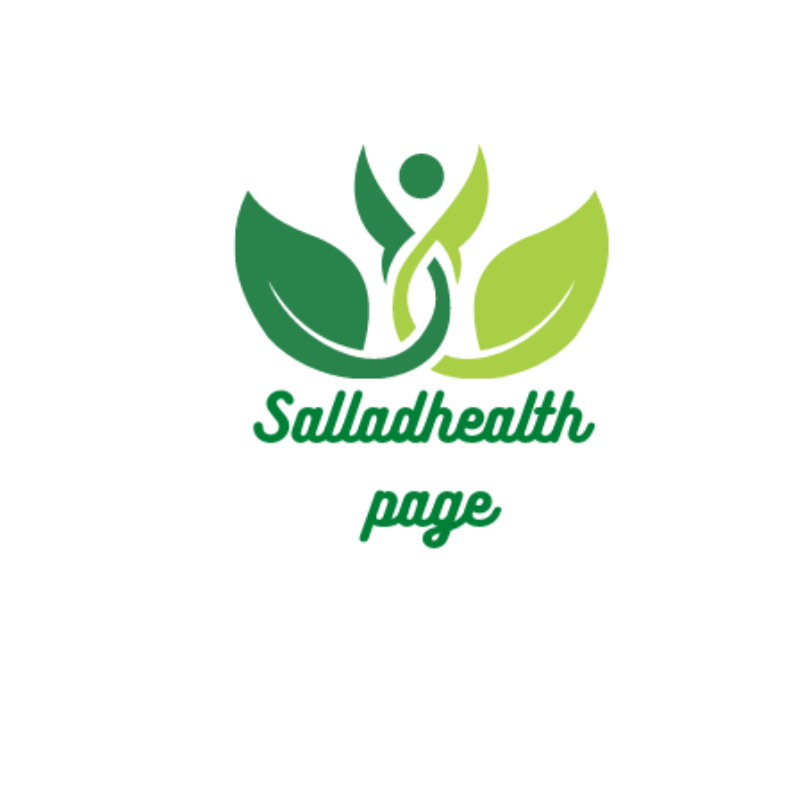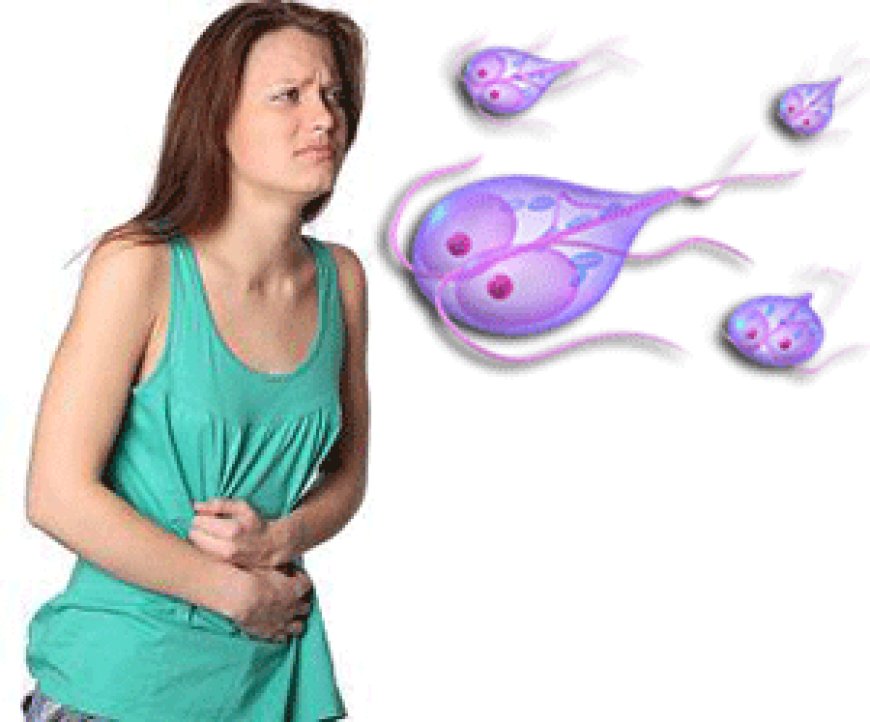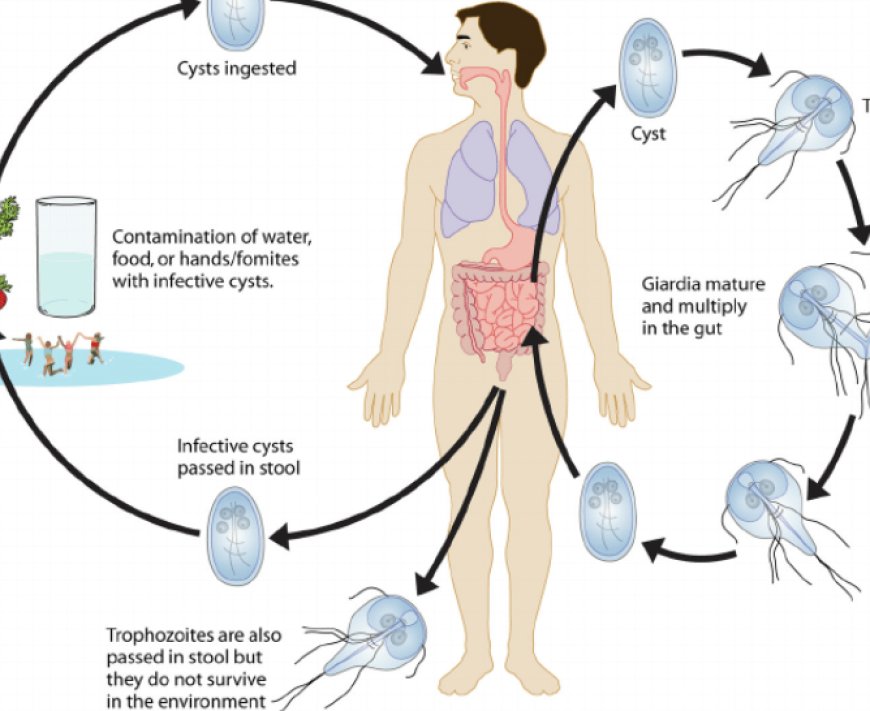How To Recognize And Treat Giardiasis
Giardiasis is an infection caused by a parasite that can cause a range of symptoms. Learn more about the causes, diagnosis, and treatments of this condition.
Giardiasis is an infection of the small intestine caused by a microscopic parasite called Giardia lamblia. It is one of the most common causes of diarrheal illness in the United States, and it is estimated that approximately 2.5 million people are affected each year. Giardiasis can be spread through contaminated food or water, contact with infected animals, or person-to-person contact.
The most common symptom of giardiasis is diarrhea, which may be accompanied by abdominal cramps, nausea, bloating, and weight loss. Other symptoms may include fatigue, gas, and greasy stools. In some cases, giardiasis can cause malabsorption, which occurs when the body does not adequately absorb nutrients from food. This can lead to nutritional deficiencies and can result in growth and development delays in children.
Diagnosis of giardiasis usually involves a stool sample that is examined for the presence of Giardia. In some cases, additional testing may be necessary to confirm the diagnosis.
Giardiasis is a common and treatable infection, but it can cause uncomfortable symptoms and can lead to nutritional deficiencies. If you think you may have giardiasis, it is important to contact your healthcare provider for diagnosis and treatment.
Cause
Giardiasis is a gastrointestinal infection caused by the protozoan parasite Giardia lamblia. This parasite is found in contaminated water, food and soil. It can also be spread through contact with an infected person or animal.
The Giardia parasite is an intestinal parasite that lives in the small intestine of humans and animals. It is spread through contact with contaminated water or food or through contact with an infected person or animal. When a person or animal is infected with Giardia, the parasite attaches to the intestinal wall and begins to reproduce. It is then passed in the stool of the infected person or animal.
Giardiasis is most common in areas with poor sanitation and hygiene practices. Contaminated water is the most common source of Giardia infection. In most cases, Giardia is spread through contact with contaminated food and water. Other sources of infection include contact with an infected person or animal, or contact with contaminated objects or surfaces.
Symptoms
The most common symptom of Giardiasis is diarrhea, which may be accompanied by
Abdominal cramps,
· Bloating
· Flatulence
Diarrhea caused by Giardiasis is usually watery and foul-smelling, and may contain undigested fat and mucus.
Other symptoms may include
· Nausea
· Vomiting
· Fatigue
· Weight loss
· loss of appetite
In some cases, Giardiasis may cause an itchy rash around the anus.
Giardiasis may also cause symptoms of malabsorption and malnutrition, such as vitamin and mineral deficiencies. These deficiencies may cause anemia, muscle cramps, and difficulty concentrating. Giardiasis can also cause skin rashes, joint pain, and chronic headaches.
If left untreated, Giardiasis can cause long-term complications, such as malabsorption and malnutrition. It is important to seek medical attention if you experience any of the symptoms mentioned above. Your doctor will be able to diagnose Giardiasis and provide the appropriate treatment.
It is also important to practice good hygiene and avoid drinking contaminated water or eating contaminated food to prevent the spread of Giardiasis.
Risk factors
1. Contaminated Water: Giardiasis is usually spread through contact with contaminated water. For this reason, drinking water from lakes, streams, and other bodies of water that may be contaminated with Giardia is a risk factor for developing the illness.
2. Poor Hygiene: Poor hygiene, such as not washing hands after using the bathroom, can increase the risk of Giardiasis.
3. Travel: Traveling to countries with poor sanitation can increase the risk of exposure to Giardiasis
4. Contact with Infected Individuals: Close contact with someone who is infected with Giardiasis, such as through sexual contact, can increase the risk of becoming infected.5
5. Poor Sanitary Conditions: Living in an area with poor sanitation can increase the risk of Giardiasis, as the parasite can be spread through contact with contaminated surfaces.6
6. Immunosuppression: People with weakened immune systems, such as those with HIV/AIDS or those undergoing chemotherapy, are at increased risk of developing Giardiasis.7
7. Animal Contact: Contact with animals, such as through contact with pet feces, can increase the risk of exposure to Giardiasis.
By knowing the risk factors for Giardiasis, individuals can take steps to reduce the risk of developing the illness. These steps include avoiding drinking water from contaminated sources, thoroughly washing hands after using the bathroom, and avoiding contact with infected individuals. Additionally, individuals should take extra precautions when traveling to areas with poor sanitation or areas with animal contact.
In addition to medications, it is important to make dietary changes to help treat Giardiasis. It is important to avoid foods that can irritate the gut, such as
· Dairy products
· Processed foods
· High-fat foods
Probiotic supplements may also be helpful in the treatment of Giardiasis. Probiotics contain beneficial bacteria that can help to restore the balance of bacteria in the gut, which can help to reduce symptoms and improve the body's ability to absorb nutrients.
In some cases, Giardiasis can be difficult to treat. If medications and dietary changes do not improve the symptoms, it is important to see a doctor for further evaluation and treatment. If left untreated, Giardiasis can lead to more serious complications, such as malnutrition and malabsorption of nutrients.
Giardiasis can be a frustrating infection to treat, but with the right combination of medications and dietary changes, it is possible to reduce symptoms and eliminate the infection. It is important to follow the doctor's instructions and complete the full course of therapy to ensure that the infection is completely eliminated.
Prevention
Fortunately, there are steps you can take to prevent giardiasis. The first line of defense is to
· Practice good hygiene.
· Wash your hands frequently with soap and warm water, especially after using the bathroom and before eating.
· It is also important to keep your fingernails short and clean and to avoid contact with contaminated surfaces.
The second line of defense is to avoid drinking contaminated water or eating uncooked food. Giardia cysts are resistant to chlorine and other disinfectants, so it is important to only drink water from clean sources such as bottled water or filtered water. It is also important to cook food thoroughly before eating.
Finally, it is important to practice good sanitation. Make sure to keep your kitchen and bathroom surfaces clean and sanitized. It is also important to keep your pet's living areas clean and free of feces.
Giardiasis is a common parasitic infection that can be spread through contaminated food, water, or contact with an infected person. It can cause a range of symptoms, including diarrhea, abdominal pain, and bloating. The diagnosis is made through laboratory tests, and the treatment is usually with a combination of medications and lifestyle changes. With prompt diagnosis and treatment, giardiasis can be effectively treated and managed.
What's Your Reaction?











































